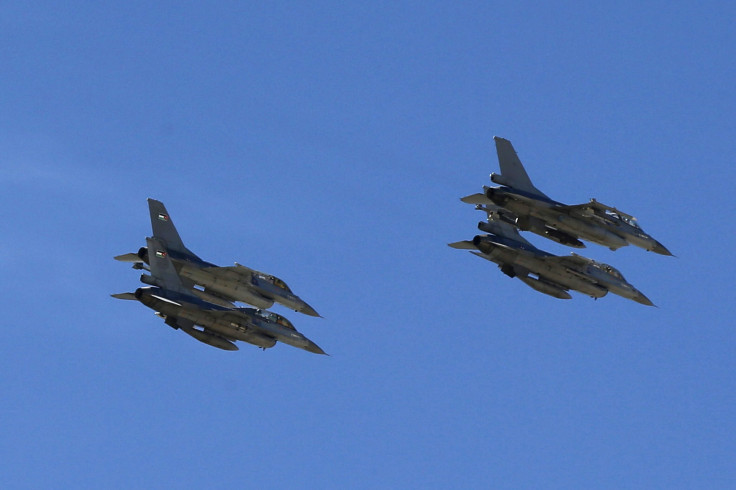Jordan's 'Relentless War' After ISIS Burns Pilot Alive May Include Special Forces, More Airstrikes

In response to the killing of a Jordanian air force pilot at the hands of the Islamic State group, King Abdullah II has vowed to pursue a “relentless war” against ISIS. Jordan is already taking part in airstrikes against the group, and could easily step up its commitment quickly as part of a retaliation campaign.
"The revenge will be as big as the calamity that has hit Jordan," Army spokesman Colonel Mamdouh al Ameri said in a televised statement on Wednesday morning.
The Royal Jordanian Air Force currently operates four F-16 aircraft as part of the U.S.-led coalition conducting airstrikes against Islamic State targets. It had suspended those strikes in late December in order to help secure the release of Flight Lieutenant Muath al-Kasaesbeh, who was captured by ISIS fighters on Dec. 24 after his F-16 crashed near Raqqa, Syria, the de facto capital of the so-called ISIS caliphate. It will now likely resume them, and add to its firepower -- but there are risks associated with that.
“Whilst there is a clear impulse for revenge, another incident like this, the loss of another aircraft, would be a very politically sensitive issue and would open up the government and leadership to charges of negligence,” said Shashank Joshi, a senior research fellow and Middle East security expert at the Royal United Service Institute, a London-based military think tank. “So I think they have to be very careful how they handle their involvement from now on.”
Jordan would be more than capable of expanding its airstrikes in Syria. It has around 60 additional F-16s, according to arabaviation.com, on top of the four that are being used in Syria, the most modern warplanes fielded by its air force. It also has 25 Bell AH-1 Cobra attack helicopters.
Retired air force General Mamoun Abu Nowar told the New York Times that Jordan may quickly increase airstrikes in Syria in response to the killing, and add targeted action by special forces: "We might even see in a couple of days the rate of sorties increased dramatically. We might have some special operations against their leadership, too," he said.
Jordanian officials have said that the “stage is set for escalation” and that the use of ground troops cannot be ruled out.
Should Jordan proceed with an unprecedented use of ground troops against ISIS in Syria by a coalition nation, it would be able to rely on its relatively large army, with around 90,000 regular troops and 60,000 reserves -- similar in size to the British Army, despite having a population just one-tenth the size of Britain.
Jordan’s special forces, which have 14,000 soldiers and are among the best in the region, could also offer an option to be used alongside increased airstrikes, Joshi said. “They have strong political and cultural ties with Syria and Iraq, including very strong tribal links, and therefore a unique ability to operate special forces in those areas,” he said. “They are also extremely interoperable with the U.S., U.K. and other partners, and have the capability to provide niche assets to the coalition if they wish to do so.”
Jordan had been negotiating for the release of al-Kasaesbeh until recently, hoping to swap Iraqi prisoner Sajida al-Rishawi for the pilot, but the appearance on Tuesday of a video showing the pilot being burned alive inside a cage ended all hope. It later transpired that al-Kasaesbeh was killed on Jan. 3. Al-Rishawi and another Iraqi terrorist, who had been condemned to death previously, were both hanged Wednesday at dawn in immediate retalation.
© Copyright IBTimes 2024. All rights reserved.






















